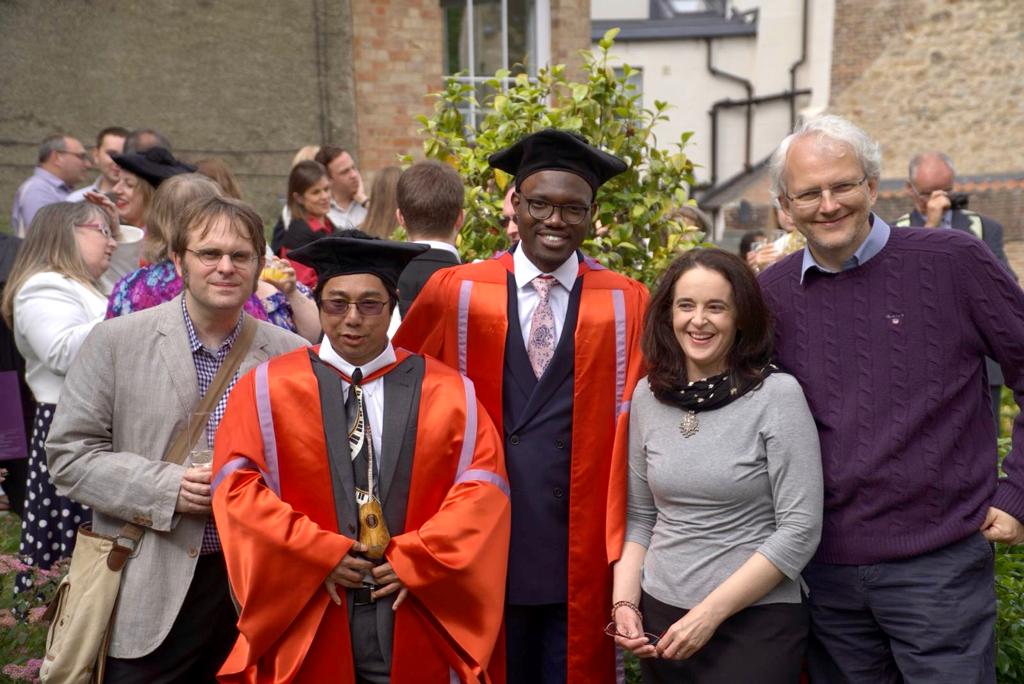Taught Masters in Ethnomusicology
Ethnomusicology at Durham
We have one of the largest and most respected ethnomusicology programmes in the UK, with four specialist faculty members. Staff work closely with a talented group of research and taught postgraduate students in a friendly and informal environment. Amongst our strengths are unique facilities and expertise to support audiovisual ethnomusicology and a range of interdisciplinary research events and projects. For more about ethnomusicology at Durham, see here.
What will you do?
Get to know your discipline, and why it matters
You’ll work closely with internationally-renowned staff and your peers to get a firm grounding in the discipline – its theories, methods, history and debates – to prepare you to carry out your own original research. Your work will be a combination of seminar discussions, diverse assignments (for example in transcription, or critiquing audiovisual materials), and a substantial final dissertation on a topic of your choice. Meanwhile, we recommend that you take our unique Audiovisual Media Creation for Research module.
Explore your interests in more detail
We encourage you to explore your interests fully and rigorously. You’ll do a large-scale independent research project within the broad field of ethnomusicology. Recent postgraduate projects have focused on music traditions in places including China, India, Nigeria, Thailand, Slovakia and the UK; topics have included funeral rituals, the use of gesture in singing, emotion in the experience of musical ritual, the experience of diaspora communities, street music, online music culture and cultural policy. For full details on the course structure, see here.
Be part of the academic community
When you join Durham, you become part of the research community and work very closely with the academics in your pathway, including your dissertation supervisor, as well as finding that other staff are at your disposal. Feel free to contact individual lecturers whose specialisms relate to your interests: take a look here. You’ll also join Masters and PhD students across the pathways in reading groups and the postgraduate seminar, and the whole department meets regularly to hear presentations from visiting scholars in our Research Forum. You can also enhance your studies through practical participation in Durham's rich musical culture. Alongside numerous choirs and orchestras, we offer a Javanese gamelan society, Korean percussion group, gospel choir, and more.
For more about the research environment at Durham, including the interdisciplinary networks, conferences and publications hosted at the university, see here.

What do our students think?
Choosing to study at Durham University Music Department is one of my best career decisions. I really enjoyed the Ethnomusicology Master's course and decided to stay on and pursue a PhD. I saw how dedicated the Music Department staff were in supporting students in every way possible: being an international student, I was particularly impressed by the way they helped me and others settle in. The support from the Durham Music Department […] ensures everyone thrives in their chosen path.
“I loved the opportunity to really focus on your own interests, with a lot of the module summatives being 'research project' based. There is such a fantastic community of incredibly intelligent people at Durham, and taking the opportunity to learn from my peers and widen my musical knowledge was something I very much valued on the MA course. I think postgraduate study could appear lonely - but this certainly wasn't the case in the Durham Music Department."
“The reasons why I chose Durham University as my academic refuge were twofold: the Department of Music is so dynamic and academically prominent; and Durham is such an excellent place to live. If you are an international student with the worries about your English proficiency, Pre-sessional English Programmes at Durham University are ideal. The MA Ethnomusicology programme was a perfect combination of research methodology and a miscellany of tasks that laid a strong foundation for my PhD."
"In just a year, I explored a fascinating variety of subjects: from Omaha songs to sacred Hindustani rāgs, from Tatar music of “ozyn kѳy”, the topic of my research, to Portuguese fado…. The Ethnomusicology pathway has made this journey even more joyful: by the end of this year, I can confidently assert my belonging to the cohort of ethnomusicologists, being equipped with the knowledge of theory, fieldwork, and audiovisual documentation."


/prod01/prodbucket01/media/durham-university/departments-/music/45088-2100X942.jpg)



